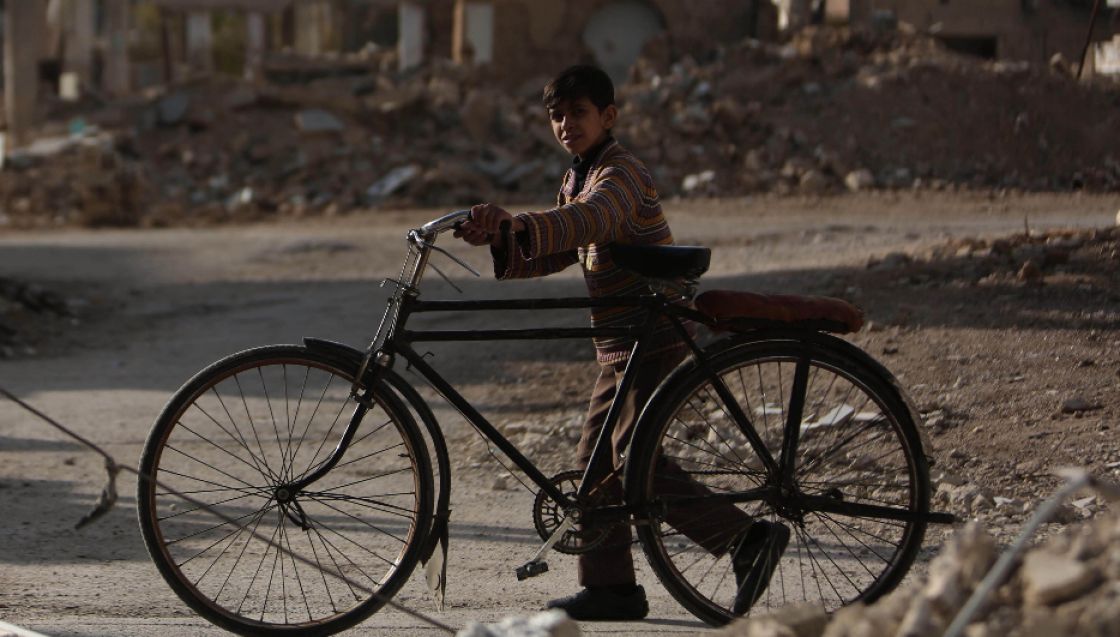- Editorials
- Posted
Towards a Fulfilling Independence
The 75th anniversary of the evacuation of the last French colonizer’s troops from the Syrian territories comes at a time when the country is going through a very difficult and catastrophic situation on various levels.
The difficulty of the conditions that Syria and its people are living is precisely what makes evoking the memory of the evacuation and its major lessons an urgent, immediate, and present need, particularly those lessons that the forefathers of the republic set in stone and bolstered with their struggle and blood, starting with the martyr Yusef al-Azmeh, and including the leaders of the Great Syrian Revolt, led by Sultan Sultan Pasha al-Atrash.
Atop the lessons learned is that the Evacuation and the independence of Syria were achieved by the synergy between two main factors:
First: By the international balance emerging after the Second World War, which secured the appropriate international condition for the struggles of the peoples of the Third World seeking liberation from colonialism towards achieving that liberation at its political level. Perhaps among the first political expressions of the new international balance was the veto that the Soviet Union used on February 16, 1946 in favor of Syria and against the proposals of the French colonizer, which was seeking to delay exiting Syrian territory. This veto was the first in the history of the Security Council!
Second: Those who consider that the previous factor, i.e., the international balance arising at the time, is the one and only factor responsible for independence and evacuation, are mistaken. The truth of the matter is that the emerging balance was a guarantee of the external condition for evacuation. However, the internal condition -- through resisting the colonizer and raising to the maximum the costs of its presence -- was secured in Syria in the best and deepest possible way by the Syrian people under the leadership of the founding fathers. Perhaps the most important evidence for this is that securing the external condition was common to all the colonized countries, but nevertheless, Syria was the first country in the entire world to gain its independence, precisely because Syria received the occupier in the Battle of Maysalun, the battles that preceded in the coastal area, and those that followed during the Great Syrian Revolt and thereafter.
The conditions we are living today are similar in some ways to the conditions that Syrians lived through during the first half of the last century, as the task of unifying the country and achieving its independence from a foreign power in the political sense is back to the top of the agenda, but in a more profound and complex way. What history has proven is that the first independence was independence in the general political sense, and it did not transform into complete independence with its different dimensions, on top of which the socioeconomic.
What happened in Syria, and in most of the Third World countries, is that colonialism came out of the door, only to return from the economic window through modern colonialism, with which the regimes of plundering and oppression gradually settled, and by submitting to the recipes of “international institutions”. Thus, the peoples of the Third World became plundered by the Western international plunderers themselves, but not directly, as was the case during old colonialism, but through powerful systems ruling, oppressing, and robbing these peoples, for their own benefit and for the benefit of the major international plunderers.
Achieving the second independence requires, just like the first, two conditions together, external and internal. The external is related to an international balance that limits the ability of international plunderers to interfere in Syrian affairs. This balance finds its clear expression in UNSC Resolution 2254 in particular, which closely resembles the first veto in the Security Council. As for the internal, it requires the cooperation of patriotic forces from all sides, and not only in the political sphere, but also in the sphere of integrated national economic and social programs that end once and for all the trading of national slogans at the expense of people’s livelihood and dignity, and unite the socioeconomic struggle with the patriotic struggle and the democratic struggle in one, because these aspects are absolutely inseparable, and whoever tries to separate them is doing so disingenuously for the purpose of manipulating the people and acting against their interests.


